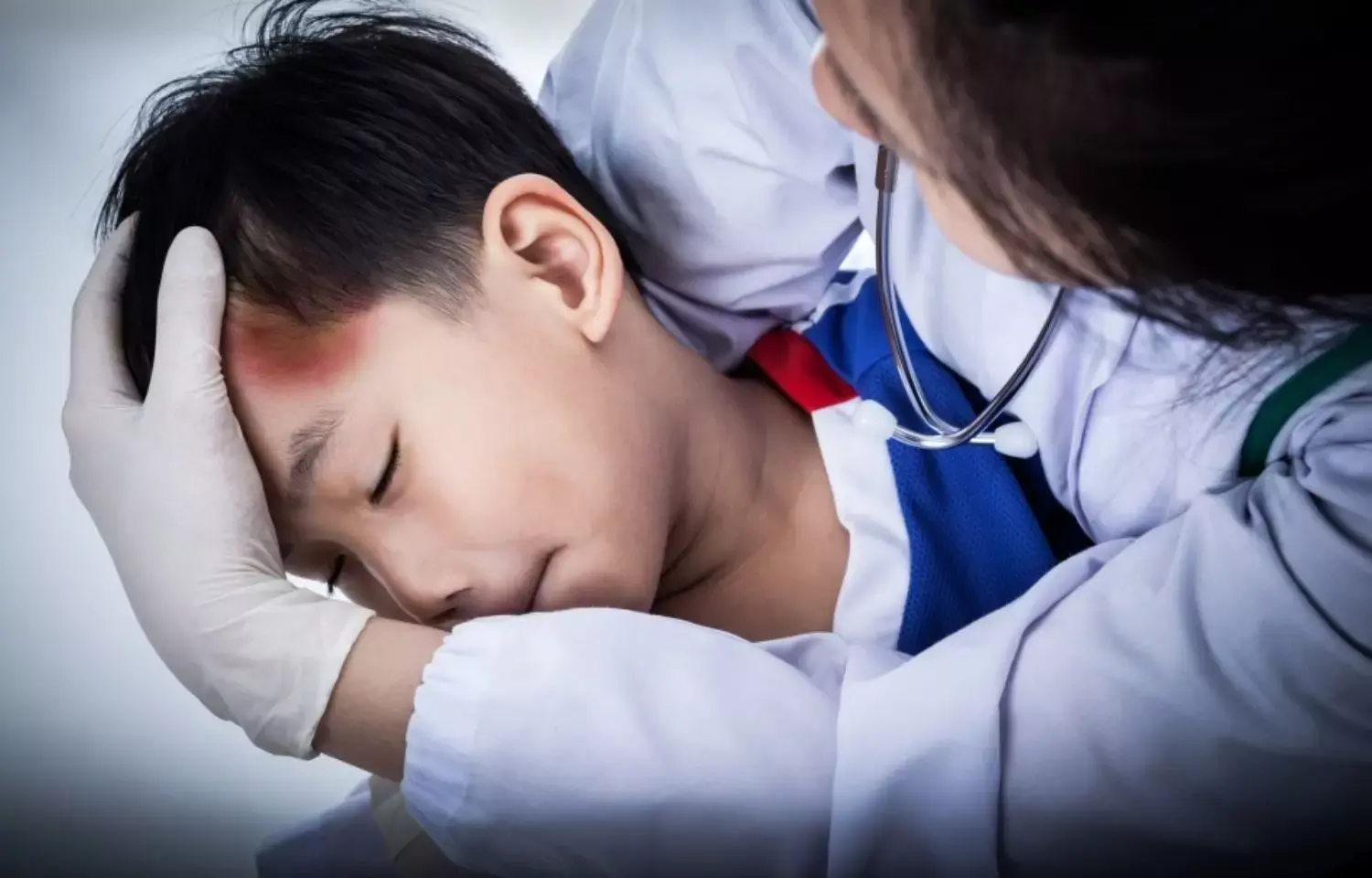- Home
- Medical news & Guidelines
- Anesthesiology
- Cardiology and CTVS
- Critical Care
- Dentistry
- Dermatology
- Diabetes and Endocrinology
- ENT
- Gastroenterology
- Medicine
- Nephrology
- Neurology
- Obstretics-Gynaecology
- Oncology
- Ophthalmology
- Orthopaedics
- Pediatrics-Neonatology
- Psychiatry
- Pulmonology
- Radiology
- Surgery
- Urology
- Laboratory Medicine
- Diet
- Nursing
- Paramedical
- Physiotherapy
- Health news
- Fact Check
- Bone Health Fact Check
- Brain Health Fact Check
- Cancer Related Fact Check
- Child Care Fact Check
- Dental and oral health fact check
- Diabetes and metabolic health fact check
- Diet and Nutrition Fact Check
- Eye and ENT Care Fact Check
- Fitness fact check
- Gut health fact check
- Heart health fact check
- Kidney health fact check
- Medical education fact check
- Men's health fact check
- Respiratory fact check
- Skin and hair care fact check
- Vaccine and Immunization fact check
- Women's health fact check
- AYUSH
- State News
- Andaman and Nicobar Islands
- Andhra Pradesh
- Arunachal Pradesh
- Assam
- Bihar
- Chandigarh
- Chattisgarh
- Dadra and Nagar Haveli
- Daman and Diu
- Delhi
- Goa
- Gujarat
- Haryana
- Himachal Pradesh
- Jammu & Kashmir
- Jharkhand
- Karnataka
- Kerala
- Ladakh
- Lakshadweep
- Madhya Pradesh
- Maharashtra
- Manipur
- Meghalaya
- Mizoram
- Nagaland
- Odisha
- Puducherry
- Punjab
- Rajasthan
- Sikkim
- Tamil Nadu
- Telangana
- Tripura
- Uttar Pradesh
- Uttrakhand
- West Bengal
- Medical Education
- Industry
Concussions among kids tied to mental health problems: JAMA

Canada: Concussion in children and youths aged 5 to 18 years is associated with an increased risk of mental health problems compared with their counterparts with an orthopedic injury, reveals a 10-year retrospective cohort study. The study was published in JAMA Network Open on March 7, 2022.
In the pediatric population, concussions are a serious concern that may exacerbate mental health issues. The extent to which a concussion increases the later risk of psychopathology or new onset of psychiatric disorders is not clear. To get clarity on the topic, Andrée-Anne Ledoux, Children's Hospital of Eastern Ontario Research Institute, Ottawa, Ontario, Canada, and colleagues aimed to investigate associations between concussion and risk of subsequent mental health issues, self-harm, psychiatric hospitalizations, or suicides in a population-based retrospective cohort study.
The study included children and youths aged 5 to 18 years with a concussion or orthopedic injury between children and youths aged 5 to 18 years with a concussion or orthopedic injury. The subjects had no previous mental health visit in the year before the index event for cohort entry and no prior concussion or traumatic brain injury 5 years before the index visit.
The exposed cohort included participants with concussions and those with an orthopedic injury were included in the comparison cohort; these groups were matched in the ratio of 1:2, respectively, on age and sex.
Mental health problems, such as psychopathologies and psychiatric disorders was the primary outcome.
Following were the key findings of the study:
- A total of 152 321 children and youths with concussion (median age, 13 years; 86 423 male) and 296 482 children and youths with orthopedic injury (median age, 13 years; 171 563 male) were matched by age and sex.
- The incidence rates of any mental health problem were 11 141 per 100 000 person-years (exposed group) and 7960 per 100 000 person-years (unexposed group); with a difference of 3181 per 100 000 person-years.
- The exposed group had an increased risk of developing a mental health issue (adjusted hazard ratio [aHR], 1.39), self-harm (aHR, 1.49), and psychiatric hospitalization (aHR, 1.47) after a concussion.
- There was no statistically significant difference in death by suicide between exposed and unexposed groups (HR, 1.54).
The researchers conclude, "concussion was associated with an increased risk of mental health visits, psychiatric hospitalization, and self-harm among kids who had sustained a concussion compared with their contemporaries who had sustained an OI."
The researchers, therefore, suggest that clinicians should 1) assess for preexisting and new mental health symptoms throughout concussion recovery; (2) treat mental health conditions or symptoms or refer the patient to a specialist in pediatric mental health; and (3) assess suicidal ideation and self-harm behaviors during evaluation and follow-up visits for concussion.
Reference:
Ledoux A, Webster RJ, Clarke AE, et al. Risk of Mental Health Problems in Children and Youths Following Concussion. JAMA Netw Open. 2022;5(3):e221235. doi:10.1001/jamanetworkopen.2022.1235
KEYWORDS: JAMA, concussion, mental health problems, psychiatric disorders, hospitalization, suicide, self harm, Andree-Anne Ledoux, children, youth, pediatric mental health, suicidal ideation
Dr Kamal Kant Kohli-MBBS, DTCD- a chest specialist with more than 30 years of practice and a flair for writing clinical articles, Dr Kamal Kant Kohli joined Medical Dialogues as a Chief Editor of Medical News. Besides writing articles, as an editor, he proofreads and verifies all the medical content published on Medical Dialogues including those coming from journals, studies,medical conferences,guidelines etc. Email: drkohli@medicaldialogues.in. Contact no. 011-43720751


